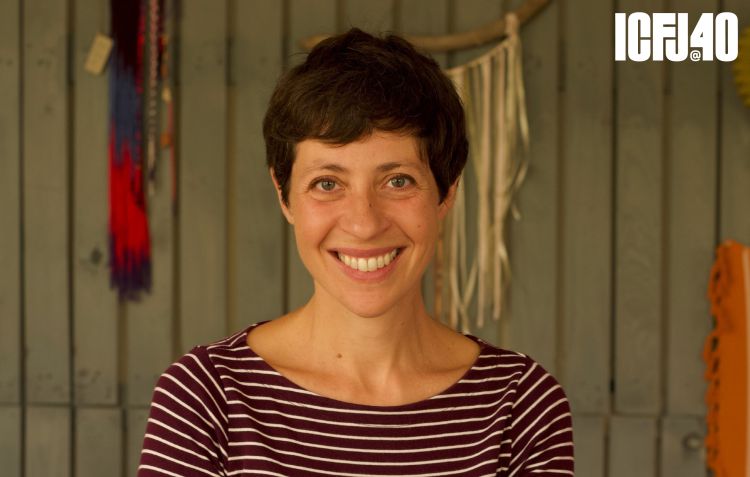Irene Caselli is author of “The First 1,000 Days” newsletter. She previously reported from Latin America.
Through her engagement with ICFJ, she received financial assistance and mentoring, and was able to publish a piece on refugees that would not have been possible without ICFJ support.
Caselli is from Naples, Italy, and resides in Athens, Greece. She covers early childhood and caregiving through a global lens.

This interview has been edited slightly.
How have you been involved with ICFJ over the years?
I was a fellow of the 2021 Global Nutrition and Food Security Reporting Fellowship program, and I visited the main refugee camp in Lesvos, Greece, thanks to that grant, writing a story about how difficult it is to look after a newborn in a refugee camp, with an emphasis on the challenges of breastfeeding.
In the past, I was also a contributor to IJNet English, covering media news from Latin America, and in August 2024 we are planning a joint IJNet/Dart Center online webinar on how to cover children at war.
What was the biggest outcome from participating in the program?
The grant gave me the funds to travel to Lesvos for 10 days, a trip I would have not been able to finance alone as a freelancer, and that news outlets do not contribute money towards.
Since I had covered migration before (especially in 2019, when I spent a month in Lampedusa thanks to another grant), this ICFJ grant gave me the chance to deepen my understanding of early childhood and caregiver challenges in the migration context, diversifying both the content of my newsletter and giving me a deeper understanding of how diverse childhood can be depending on the context.
What is something impactful you have worked on since participating in an ICFJ program that you are proud of and would want to highlight?
Since 2022, I have been leading the Early Childhood Journalism Initiative, a multi-year program by the Dart Center for Journalism and Trauma at Columbia University. Thanks to this work, I have been working with journalists from around the world, helping them in their coverage of early childhood and caregivers.
Through workshops, webinars, reporting fellowships, and networking opportunities, this initiative is providing journalists around the world with knowledge, skills, financial support, and other resources to expand and deepen news coverage of early childhood and caregivers. I am deeply committed to this work, which I think can mark a difference, and I feel very proud of having a prominent role in spreading the word, as well as covering the issues myself through my international, reader-funded newsletter.
What are you currently working on that you’re excited about?
At the Dart Center, we are working on launching a network for journalists covering early childhood and caregivers which will create a structure to support and expand the work of journalists who focus on these issues or want to learn more. I am excited about being able to give structure to these international connections and to foster more collaborations. From a creator’s perspective, I am about to move my newsletter to Substack, and am hoping to grow my audience by doing more coverage of solutions that support caregivers of the youngest children around the world.
What kind of difficulties as a journalist have you faced in Greece?
I am very privileged because – even if I am based in Greece – most of my work is not on the ground in Greece, where journalists face a lot of challenges – economic, of freedom and access – which are not part of my everyday experience.
Why did you choose to become a journalist?
It was not a planned move. I studied international relations and German in Scotland, and when I graduated I thought I wanted to work in NGOs. But then I moved to Chile, where my brother was doing a year abroad studying, and I started interning at the Santiago Times, which at the time was Chile’s only English-language newspaper. As soon as I started working there – spending days understanding local politics, getting to know the arts scene, and traveling around the country, I knew this was the profession I wanted to pursue. I love languages (I speak six and am learning Greek now), understanding the world and translating it to other people who may not have the same exposure that I have.